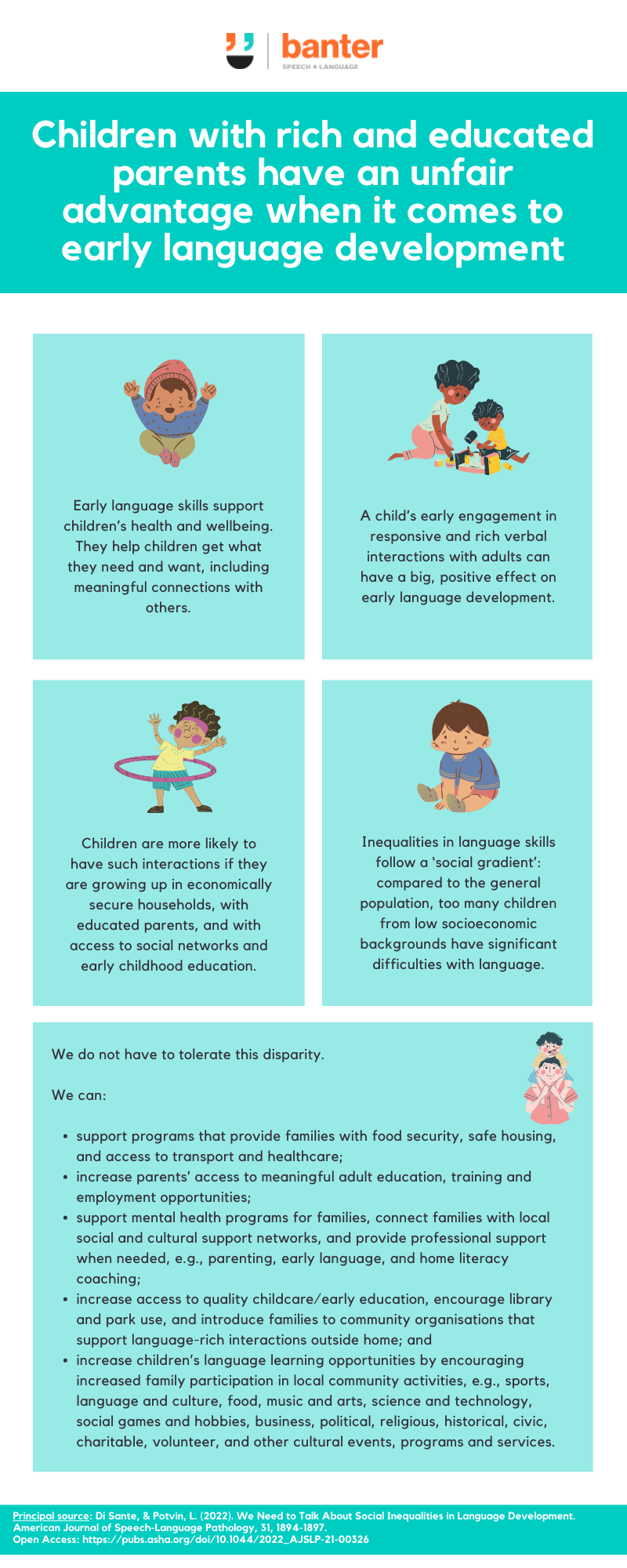Children with rich and educated parents have an unfair advantage when it comes to early language development
Early language skills support children’s health and wellbeing. They help children get what they need and want, including meaningful connections with others.
A child’s early engagement in responsive and rich verbal interactions with adults can have a big, positive effect on early language development.
Children are more likely to have such interactions if they are growing up in economically secure households, with educated parents, and with access to social networks and early childhood education.
Inequalities in language skills follow a ‘social gradient’: compared to the general population, too many children from low socioeconomic backgrounds have significant difficulties with language.
We do not have to tolerate this disparity. We can:
- support programs that provide families with food security, safe housing, and access to transport and healthcare;
- increase parents’ access to meaningful adult education, training and employment opportunities;
- support mental health programs for families, connect families with local social and cultural support networks, and provide professional support when needed, e.g., parenting, early language, and home literacy coaching;
- increase access to quality childcare/early education, encourage library and park use, and introduce families to community organisations that support language-rich interactions outside home; and
- increase children’s language learning opportunities by encouraging increased family participation in local community activities, e.g., sports, language and culture, food, music and arts, science and technology, social games and hobbies, business, political, religious, historical, civic, charitable, volunteer, and other cultural events, programs and services.

Principal source: Di Sante, M. & Potvin, L. (2022). We Need to Talk About Social Inequalities in Language Development. American Journal of Speech-Language Pathology, 31, 1894-1897. Open Access! https://pubs.asha.org/doi/10.1044/2022_AJSLP-21-00326
This infographic also appears in a recent issue of Banter Booster, our weekly round up of the best speech pathology ideas and practice tips for busy speech pathologists, speech pathology students, teachers and other interested readers.
Sign up to receive Banter Booster in your inbox each week:

Hi there, I’m David Kinnane.
Principal Speech Pathologist, Banter Speech & Language
Our talented team of certified practising speech pathologists provide unhurried, personalised and evidence-based speech pathology care to children and adults in the Inner West of Sydney and beyond, both in our clinic and via telehealth.








